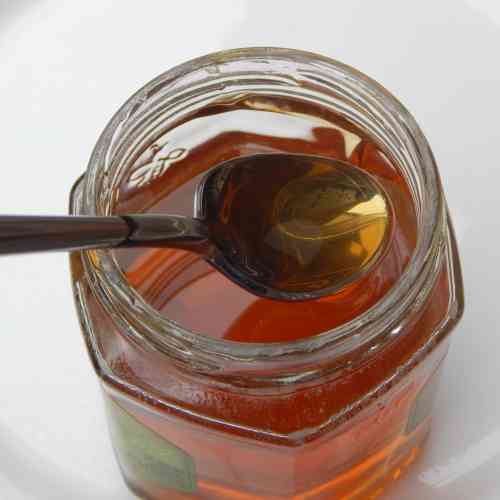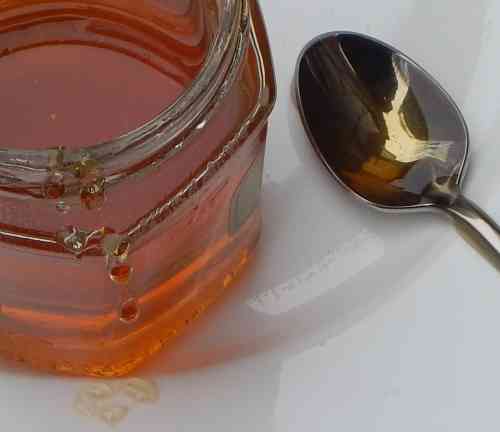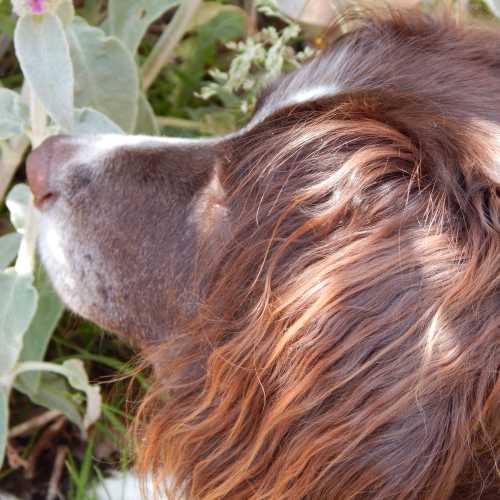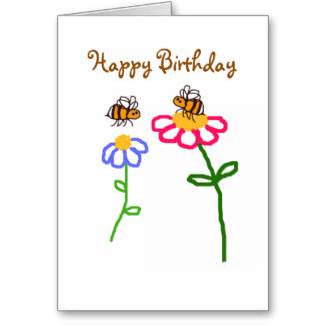Will Honey Stop A Cough?
Date: 3rd March 2020
Is there scientific evidence to suggest that honey will stop a cough?
The short answer is:
Yes, honey has been proven to be an effective anti-tussive (cough suppressant).
However, in a time of concerns about serious viruses and infections, it may be a good idea to see a doctor, especially in the case of young children, or persons with impaired immunity.
Honey For Coughs
There is no doubt that cough can be a health concern that is sometimes sufficiently serious to warrant hospital visits, and that it can impair quality of life, causing breathing difficulties, anxiety and sleep deprivation for the sufferer (and for parents when it is children who are the sufferers).
The World Health Organisation has identified honey as a
possible demulcent agent - a treatment that reduces inflammation in mucus
membranes such as in the throat, or reduces mucus secretion. So what is the evidence for or against use of
honey for coughs and sore throats?
How Honey Suppresses Coughs - Scientific Evidence
A review of the data in 2012 on the use of honey for acute cough in children1 showed that honey on its own was better than no treatment at all, and better than diphenhydramine (Benadryl).
It was also shown to be as equally good at suppressing cough as dextromethorphan (Benylin, Robitussin, NyQuil). At this point it must be reiterated that it is dangerous to give honey to children younger than 1 year of age.

In 2014 Goldman2 stated that there is increasing evidence that a single dose of honey at bedtime can suppress cough in children by reducing mucus secretion.
Paul et al3 found that a small bedtime dose of honey was superior to both no treatment, and use of dextromethorphan in terms of cough frequency, cough severity, bothersome nature of cough, and child and parent sleep quality.
Cohen et al4 compared 3 varieties of honey at a dose of10mg before bedtime, with a placebo (from Silan date extract) for treatment of nocturnal cough, and for difficulty sleeping associated with childhood upper respiratory tract infections. The honey treatments were superior to placebo when measuring frequency of cough, severity of cough, troublesome nature of cough, and sleep quality. The authors of the study suggest that the well-established antioxidant and antimicrobial effects of honey may help to explain its efficacy in treating coughs.
In Italy, Miceli Sopo et al5 compared the use of 3 consecutive doses of wildflower honey (combined with milk) with use of dextromethorphan and levodropopizine, and showed that honey was equally effective against cough.

Which honey is best for cough?
In the papers mentioned above, researchers each used different types of honey, and so it is not possible to compare performance of individual honeys. However, it can be said that in the study by Cohen et al4, three honeys were included in the experiment:
- eucalyptus honey
- citrus honey
- labiate honey.
All of the honeys were effective, but eucalyptus honey was slightly better than the other two. The researchers suggest that darker honey has higher levels of anti-oxidant.
Paul et al used buckwheat honey2 and it was found to be effective as a cough suppressant, whereas Miceli Sopo et al5 used wildflower honey, which was also found to provide relief of cough.
As an aside, borage extract (from the borage plant) has been found to assist against cough6, although currently I am not aware of any research assessing whether these benefits are transferred into borage honey.
How much honey should be given for a child's cough?
Goldman et al2 state that honey can be recommended as a single dose of 2.5 mL before bedtime for children older that 1 year of age with cough.
Will honey help my dog's cough?
 Charlie, our beautiful spaniel
Charlie, our beautiful spanielOur beautiful spaniel never had a cough, but I understand that honey can help a dog's cough. A small dog can be given about half a teaspoon (simply allow the dog to lick it off the spoon). A larger dog can be given more.
However, do have your dog checked by the vet in case of other problems.
Honey is not suitable for cats, and cats cannot taste honey.
Conclusion
It would appear from the studies that honey represents a simple (and relatively inexpensive) form of treatment for cough.
Honey helps reduce frequency and severity of night time cough as well as improving sleep quality for sufferers and parents.
References
1. Oduwole O, Meremikwu MM, Oyo-Ita A, Udoh EE. Honey for acute cough in children. Cochrane Database Syst Rev. 2012 Mar 14; Review. Update in: Cochrane Database Syst Rev. 2014;(12): CD007094. PubMed PMID: 22419319.
2. Goldman RD. Honey for treatment of cough in children. Can Fam Physician. 2014;60(12):1107–1110.
3. Paul IM, Beiler J, McMonagle A, Shaffer ML, Duda L, Berlin CM Jr. Effect of honey, dextromethorphan, and no treatment on nocturnal cough and sleep quality for coughing children and their parents. Arch Pediatr Adolesc Med. 2007 Dec;161(12):1140-6. PubMed PMID: 18056558.
4. Herman Avner Cohen, Josef Rozen, Haim Kristal, Yoseph Laks, Mati Berkovitch, Yosef Uziel, Eran Kozer, Avishalom Pomeranz, Haim Efrat; Effect of Honey on Nocturnal Cough and Sleep Quality: A Double-blind, Randomized, Placebo-Controlled Study;Pediatrics Sep 2012, 130 (3) 465-471; DOI: 10.1542/peds.2011-3075.
5. Miceli Sopo S, Greco M, Monaco S, Varrasi G, Di Lorenzo G, Simeone G; Milk Honey Study (M&HS) Group. Effect of multiple honey doses on non-specific acute cough in children. An open randomised study and literature review. Allergol Immunopathol (Madr). 2015 Sep-Oct;43(5):449-55. doi: 10.1016/j.aller.2014.06.002. Epub 2014 Sep 6. PubMed PMID: 25201759.
6. Mirsadraee M, Khashkhashi Moghaddam S, Saeedi P, Ghaffari S. Effect of Borago Officinalis Extract on Moderate Persistent Asthma: A Phase two Randomized, Double Blind, Placebo-Controlled Clinical Trial. Tanaffos. 2016;15(3):168-174.
If you found this page helpful or interesting, I'd really be grateful if you would share it with others - if not this page, perhaps another, such as Gardening For Bees.
Thank you so much :) .
